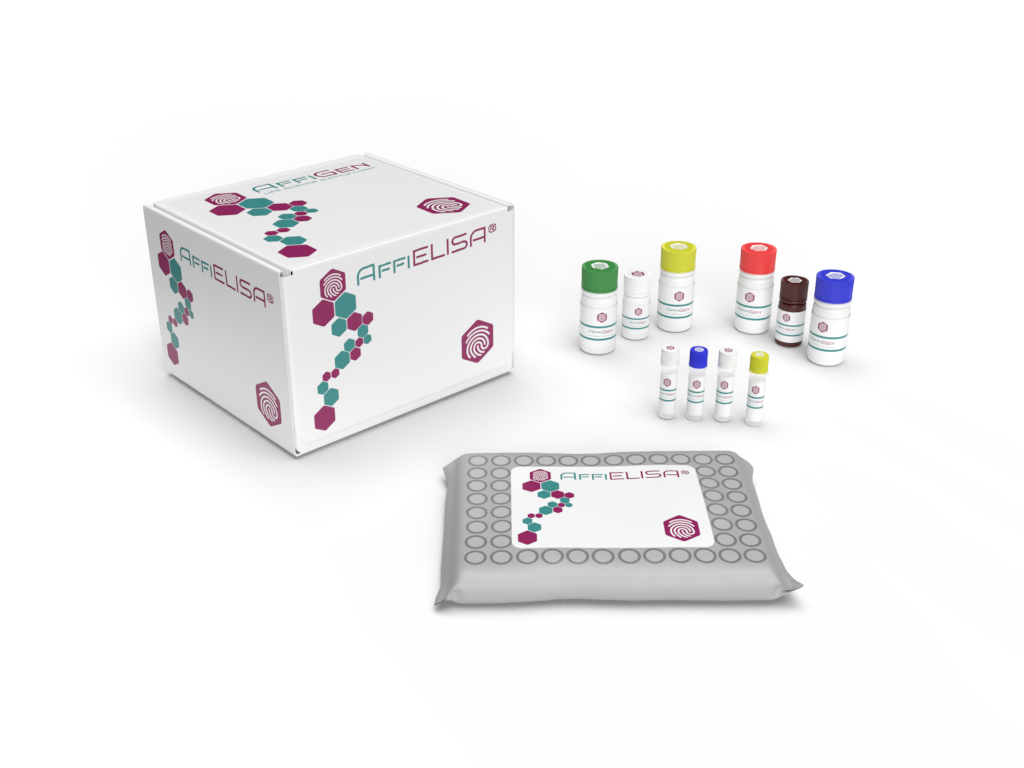AffiELISA® Horse PCT Kit: High Sensitivity Procalcitonin ELISA Detection
The AffiELISA® Horse Procalcitonin (PCT) Kit is a specialized laboratory assay designed for the high-sensitivity detection and quantification of procalcitonin in horse samples.
Procalcitonin is a precursor protein to the hormone calcitonin. It is produced in response to bacterial infections, particularly systemic bacterial infections, and its levels rise significantly during such infections. Procalcitonin serves as a biomarker for bacterial infections and can help in distinguishing between bacterial infections and other causes of inflammation or infection.
ELISA (Enzyme-Linked Immunosorbent Assay) is a common laboratory technique used to detect and quantify specific proteins or molecules in biological samples. This particular kit utilizes antibodies that specifically recognize and bind to horse procalcitonin, allowing for the accurate measurement and quantification of its concentration in horse samples.
In veterinary medicine, especially in equine health, measuring procalcitonin levels using high-sensitivity ELISA kits like the AffiELISA® Horse PCT Kit assists in diagnosing bacterial infections in horses. Elevated levels of procalcitonin in horse samples can indicate the presence of a bacterial infection and aid veterinarians in assessing the severity of the infection.
The high sensitivity of this ELISA kit enables the detection of low concentrations of procalcitonin in horse samples, which is particularly valuable in diagnosing early or mild bacterial infections in horses. Early detection and prompt treatment based on procalcitonin levels can contribute to better management and outcomes for horses affected by bacterial infections.
Product Specifications
AffiELISA® Horse PCT Kit
Procalcitonin
Pro-Calcitonin
Horse
Sandwich ELISA
Serum, plasma, tissue homogenates, cell lysates, cell culture supernates and other biological fluids
Infection immunity, Hormone metabolism.
Horse PCT Background
Procalcitonin (PCT) in horses, as in other mammals, is a protein precursor to the hormone calcitonin. It's produced in response to bacterial infections, particularly systemic bacterial infections. PCT levels rise significantly during severe bacterial infections, and monitoring its levels can aid in diagnosing and assessing the severity of bacterial infections in horses.
Here's how PCT functions in horses:
- Bacterial Infection Marker: PCT serves as a valuable biomarker for bacterial infections in horses. Elevated levels of PCT in blood samples suggest the presence of bacterial infections.
- Sensitivity to Infections: PCT levels rise rapidly and significantly in response to bacterial infections, even before clinical signs may appear, making it a sensitive indicator of early infection.
- Severity Indicator: The level of PCT can correlate with the severity of bacterial infections in horses. Higher levels may indicate more severe or systemic infections.
Measuring PCT levels in horses using specialized assays, such as ELISA kits designed for equine PCT detection, aids veterinarians in diagnosing bacterial infections, assessing the extent of the infection, and guiding treatment decisions. High-sensitivity ELISA kits like the AffiELISA® Horse PCT Kit allow for the accurate quantification of PCT, enabling early detection and timely intervention in cases of bacterial infections in horses.
